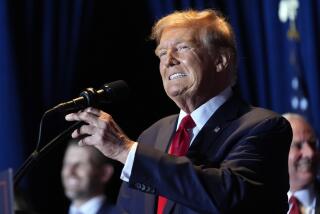Sensationalizing Supreme Court sound bites
Last week’s Supreme Court arguments on healthcare were a test case of more than the constitutionality of Obamacare. They also were an experiment in how television (and the Internet) would make use of same-day audio recordings of the justices’ questions. The reaction of The Nine to that treatment could determine whether they someday will welcome television cameras to the court.
This wasn’t the first time that the press and public could listen to audio recordings of Supreme Court arguments on the day they took place (as opposed to two, three or four days later, the current practice). According to a New York Times tally, the court released same-day audio 21 times between 2000 and 2010, beginning with an even bigger case than Obamacare, Bush v. Gore.
Some of the landmark cases made less than scintillating listening, like the arguments in McConnell v. Federal Election Commission, a 2003 marathon proceeding about campaign-finance law that bored even me – and I write about that stuff. The exchanges in that case, which went on for four hours, were heavy with legal jargon and shortcut phrases (like “ Colorado I” and “Colorado II,” references to two prior cases). Serviceable sound bites were scarce.
That wasn’t the case with at least one of the four arguments about various legal questions posed by Obamacare. On Tuesday newscasts happily recycled pithy comments by the justices about the constitutionality of the law’s insurance requirement, even though they had to illustrate the recordings with still pictures of the questioners. And, yes, those excerpts were bite-sized and tasty.
Which brings me to two common objections to televising the court’s arguments: 1) that unscrupulous and sensationalist-minded news directors would broadcast stray comments from the justices out of context and 2) that the justices and lawyers, knowing they were going to be on TV, would ham it up.
My unscientific impression is that the comments replayed on television were not presented in a misleading way (unless you count a Republican campaign ad that edited Solicitor General Donald Verrilli’s presentation to make him even more halting than he was). In soundbiting the justices, TV seemed to latch on to the same lines that received prominence in print reporting, such as Justice Anthony Kennedy’s observation that the government had a “heavy burden of justification” for the individual mandate. Oh, and what sound editor could resist this challenge for the solicitor general from Justice Antonin Scalia: “Everybody has to buy food sooner or later, so you define the market as food, therefore, everybody is in the market; therefore, you can make people buy broccoli.”
But the broccoli sound bite, and a few other comments from the bench, struck some observers as grandstanding. At one point during Wednesday’s arguments about Medicaid coverage Chief Justice John Roberts said: “That’s enough frivolity for a while.” (Scalia had just told a variation on an old Jack Benny joke.) Having covered the court, I’m not sure I agree. Scalia makes a lot of jokes even when his japes aren’t available for replay a few hours later.
I don’t think the court is about to cave when it comes to TV coverage. But how about making audiotapes of every argument available the same day?
ALSO:
Keith Olbermann’s dismissal from Current TV
A tale of two (prejudicial?) cartoons about Trayvon Martin
Supreme Court needn’t fear healthcare law’s individual mandate provision
More to Read
A cure for the common opinion
Get thought-provoking perspectives with our weekly newsletter.
You may occasionally receive promotional content from the Los Angeles Times.







